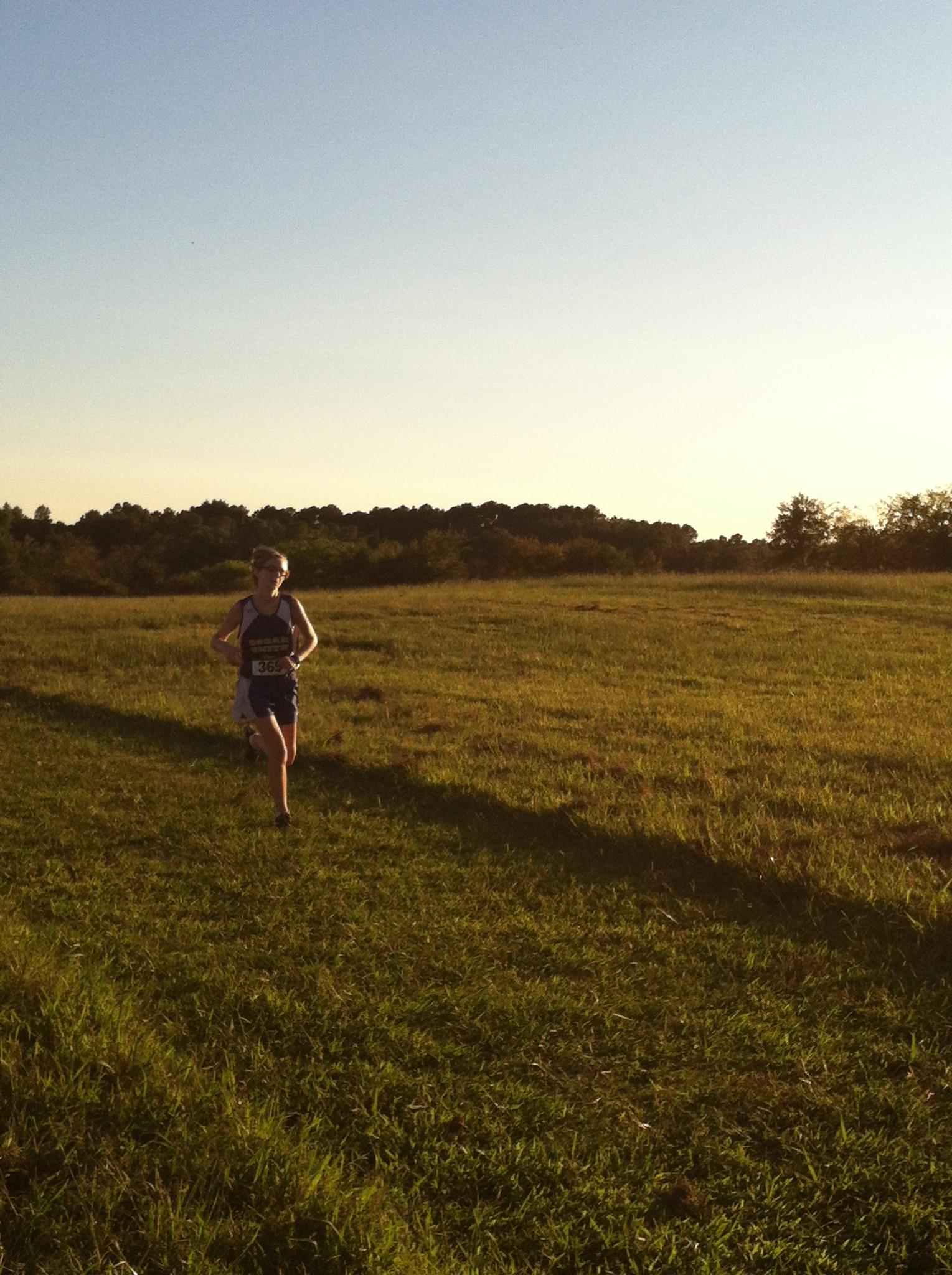What is the Perfect Day to Run?

About a month ago my mom and I started running again and she was telling me how she has such a hard time running in August because it’s just so unbearably hot and humid and it seems like it’s harder to run. As soon as she said that, I got a huge grin on my face because I knew EXACTLY what she was talking about.
In high school I was on the school cross country team for 3 years. I wasn’t exactly the fastest runner (my fastest 5K being 25 minutes and 23 seconds), but I enjoyed it and at least managed to make it through all the races. Over the course of these 3 years I noticed that my race times would vary quite a bit from race to race. At first, I thought it was just because most runners get faster as training continues and the season progresses, makes sense, right? Well then I started to notice that my times would randomly get slower for one race and the very next race I would be set a new personal record (PR). You could say I was pretty frustrated and confused at this point. Why couldn’t I keep a steady decrease in my race times and continue to get faster???
I would even sprint as hard as I could on that last little 0.1 of a mile left in the race!
That being said, I was also in the International Baccalaureate Program in high school, which is a rigorous 4 year program designed to challenge students and prompt them to think critically about the world and the problems facing the world. According to the IBO, the goal of the program is “to develop inquiring, knowledgeable and caring young people who help to create a better and more peaceful world through intercultural understanding and respect.” In my 11th and 12th grade years, I had a project to work on for each class, called an Internal Assessment (IA), which would be sent off to “IB Land” to be graded. In order to earn the IB diploma, these IAs are required and make up roughly 30% of the total grade for that particular class, along with the actual exams for the class. For my math class, Math Studies, we had to come up with our own statistical experiment to conduct, whether it be a survey or just a simple collection and analysis of data. I chose to do mine on how the weather affects the race times of high school cross-country runners. I was bound and determined to figure out what was causing my race times to be so wonky.
I suppose you might be thinking some sort of high school project really isn’t that accurate, but let me start by saying I spent a whopping 2 years on this study and it is basically my 38 page child and I’m super proud of it. I also got an 18 out o 20 on the IA, earning me the highest score possible on the IB grading scale: a 7.
So basically what I did was pick 3 high school cross country teams, separate the male runners from the female runners, collect weather data, and collect race times of the top 5 members of the male and female teams for all 3 schools. I separated the males from the females because typically, males run faster than females due to body type and build (in other words, naturally, males have more lean muscle than females). The weather data I collected included: temperature, humidity, dew point, precipitation, and cloud coverage. However, dew point was promptly removed from the study as it did not show a significant correlation with race times. Precipitation was also removed from the study because there weren’t any races where it was raining, so a valid conclusion could not be made.
After 2 years of data collection, organization, and calculations, the results were this:
- Little to no cloud coverage
- Very little humidity
- A temperature in the low to mid 60s (roughly 15-18 degrees Celsius)
There was one day in particular during the cross country season that would be considered a perfect day to run. The temperature was 64 degrees Fahrenheit (17 Celsius), the humidity was at 42%, and there were clear skies. On this day, EVERY. SINGLE. RUNNER. got a new PR, or was only a couple milliseconds off of their PR, which for many people came at a later date because they got faster as the season progressed. Even on days that were colder than 64 race times were slower!
And there you have it. The perfect day to run.

